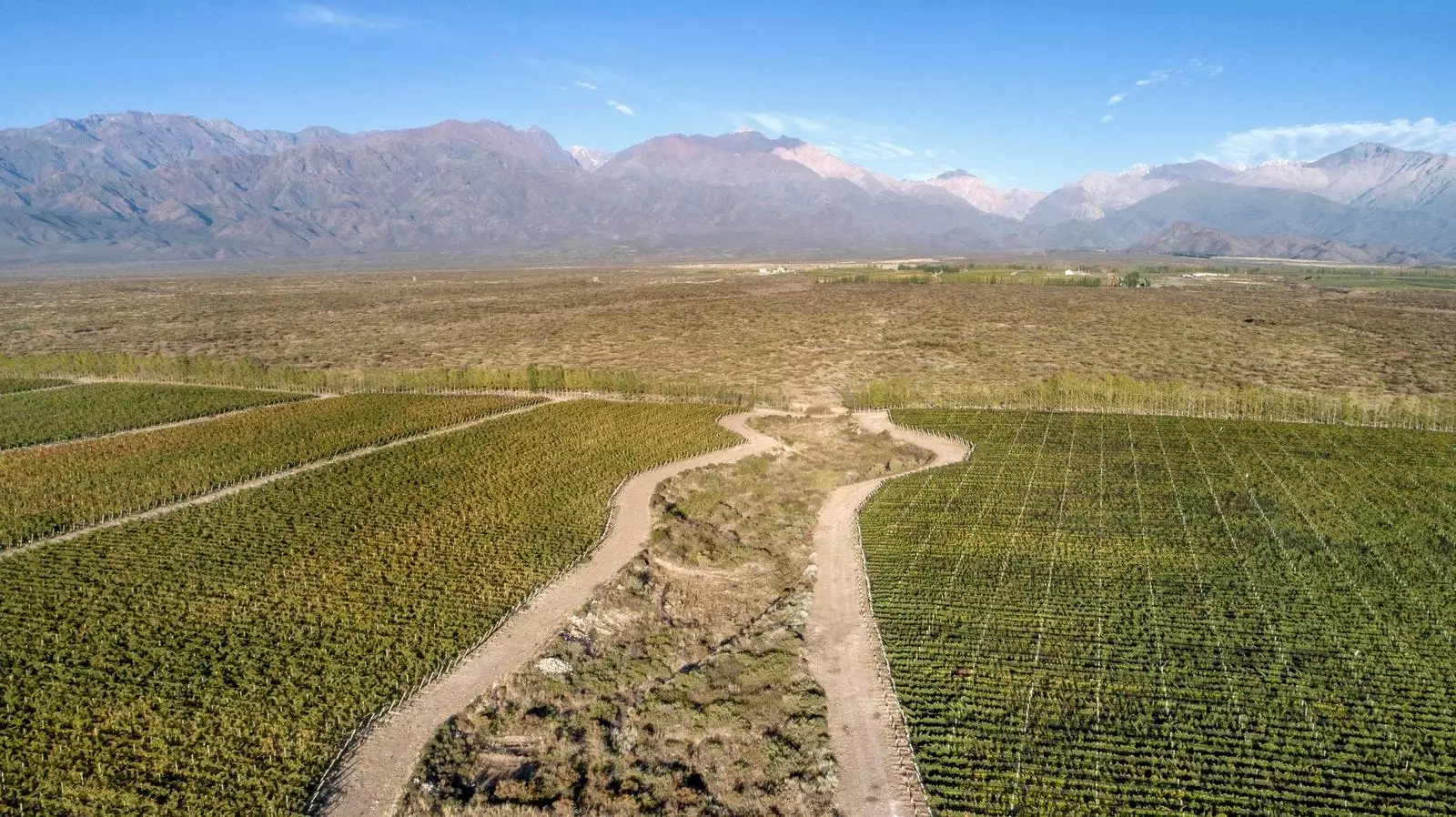In an effort to prioritize environmental stewardship, Domaine Carneros, a Napa Valley sparkling wine producer, has introduced its 2023 Avant Garde Pinot Noir Rose. This wine is the first microgrid-powered wine produced by the estate. The newly installed microgrid technology is among the first of its kind in the Napa Valley wine region. By expanding on their existing solar energy program, which was initially installed in 2003, Domaine Carneros has taken a significant step forward in sustainable energy practices. This microgrid is connected to a state-of-the-art battery system that can store energy to offset peak energy times and be utilized during off-peak times. CEO Remi Cohen states that the new microgrid can provide the winery with approximately 75% of its energy needs and ensures an independent power source during natural disasters. The wine will be available for purchase on the winery’s website starting on April 22nd, with a suggested retail price of $32.
Terrazas de los Andes, a renowned high-altitude winegrower in Mendoza, has been dedicated to sustainable practices since the early 1990s. The winery recently achieved Regenerative Organic Certified status (ROC) for 213 acres of vineyards and the winery itself. This certification makes Terrazas de los Andes the 10th winery worldwide to earn such recognition. The remaining 1,000 acres of vineyards are managed in a regenerative organic manner with the goal of achieving ROC certification for all by 2026. Their sustainability program, “Guardians of Mountain Life,” focuses on preserving natural resources, mitigating climate impact, engaging Andean communities, and empowering employees. Their practices include regenerative and organic viticulture, conserving glacier water, supporting biodiversity, and reducing the company’s carbon footprint from vineyard to winery.
In France’s Rhône Valley, winemaker Jean-Luc Colombo has initiated the Bee Helpful Program to support bee health and combat Colony Collapse Disorder. This program aims to eliminate the use of harsh pesticides, plant beneficial flora to support biodiversity, and optimize pollination for bees. To further the cause, a portion of the sales from the Les Abeilles line of wine labels, which means “the Bees” in French, will be directed to the UC-Davis Department of Entomology to aid in honeybee colony restoration. The two Côtes du Rhône wines from this line include a white made from Clairette and Roussanne and a GSM blend, priced at approximately $18.99.
Bonterra Organic Estates, a long-time environmental steward, recently launched its estate Sauvignon Blanc made from ROC vines in Mendocino County, California. In response to the growing demand for Regenerative Organic Certified products, this release aims to cater to conscious consumers. The vineyards and winery at Bonterra Organic Estates achieved ROC certification in 2021. The Sauvignon Blanc will retail for $21.99 and joins a legacy portfolio of wines produced exclusively from ROC grapes grown on the estate’s Mendocino County ranches. The company’s director of Regenerative Organic Development, Joseph Brinkley, emphasizes the importance of the social component of the ROC program in promoting sustainable farming practices.
Banfi has partnered with the Rodale Institute to commit 1% of total U.S. Naturawine sales to support 1% For The Planet. This initiative aims to increase regenerative organic acreage throughout the U.S. by providing research and education to enable farms and farmers to transition to regenerative organic agricultural practices. Natura, Banfi’s producer, is a global leader in organic agriculture and the first Chilean company to achieve regenerative organic certification. The Naturawine, with a suggested retail price of $14.99, is a testament to Banfi and the Rodale Institute’s shared commitment to environmental sustainability.
The wine industry is taking significant strides towards prioritizing sustainable practices and environmental stewardship. These initiatives by wineries around the world showcase a commitment to responsible farming, conservation of natural resources, and support for biodiversity. As consumers become increasingly conscious of the environmental impact of their choices, the wine industry’s shift towards greener practices is a positive step towards a more sustainable future.

